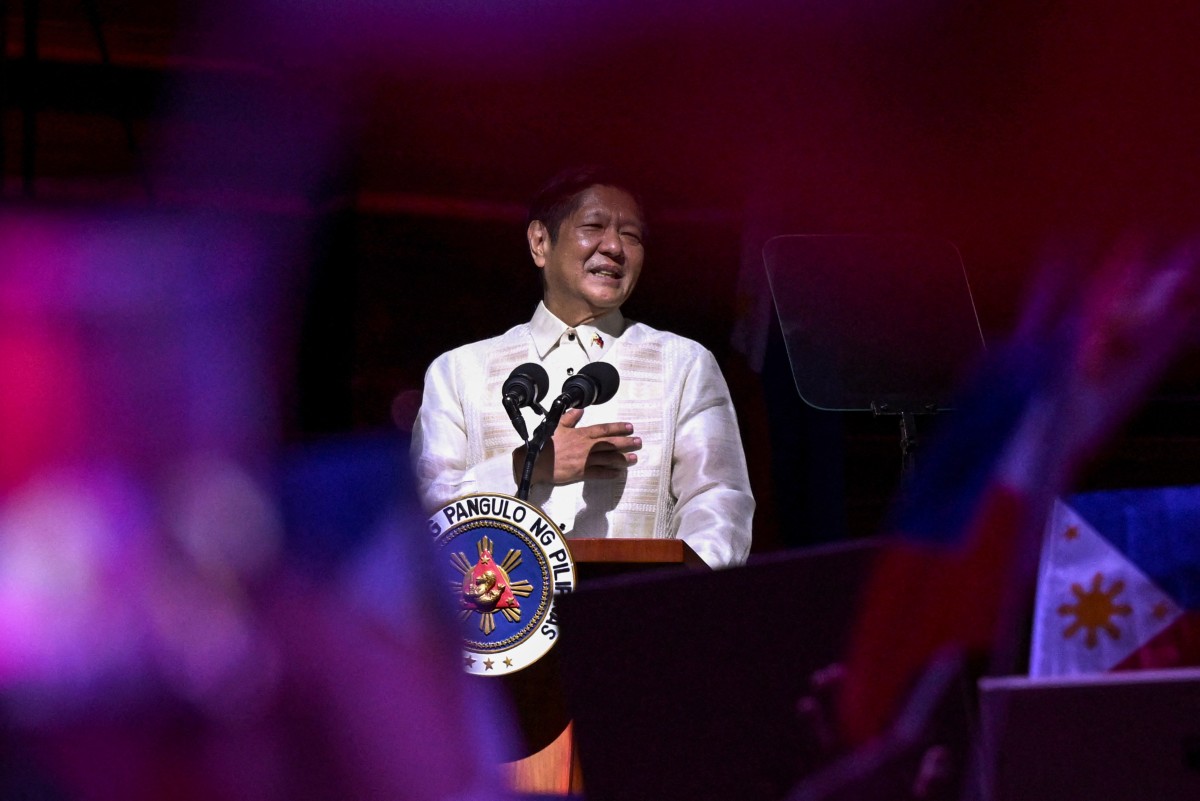The presence of Ferdinand Marcos Jr., the scion of the notorious Marcos family and son of the late Philippine dictator, in Germany, signifies more than just a routine diplomatic visit; it encapsulates a convergence of historical legacies and contemporary challenges.
While Marcos Jr. may seek to portray his engagements with Filipino communities and overseas Filipino workers (OFWs) as acts of solidarity, his visit cannot be divorced from the enduring impact of his father’s labor export policy.
Initiated by Ferdinand Marcos Sr., this policy has left an indelible mark on the Philippines, perpetuating a cycle of dependency on remittances from OFWs.
By prioritizing overseas employment over domestic job creation and economic development, the policy has fostered structural inequalities and hindered the country’s ability to address systemic issues of poverty and unemployment.
As Marcos Jr. steps foot on German soil, the implications of his visit reverberate through Philippine society, prompting reflection on the legacy of authoritarianism, economic exploitation, and human rights abuses that continue to shape the nation’s trajectory.
The rise of Ferdinand Marcos Jr. to political prominence, propelled by his alignment with former President Rodrigo Duterte, casts a shadow over the Philippines’ struggle for human rights and accountability.
The Duterte administration’s policies, including the controversial “war on drugs” and counterinsurgency campaign, have resulted in widespread human rights violations and attacks on democratic institutions.
These policies have led to extrajudicial killings, enforced disappearances, and the suppression of dissenting voices, targeting not only drug suspects but also human rights activists, journalists, and political opponents.
The atrocities committed under Duterte’s tenure have perpetuated a culture of impunity and fear among Filipinos, particularly those from marginalized communities.
In this context, Marcos Jr.’s visit to Germany not only highlights concerns about human rights and accountability in the Philippines but also underscores broader challenges facing democratic institutions and the rule of law.
As the son of a dictator who ruled with an iron fist, Marcos Jr.’s political ascent raises questions about the resilience of democratic norms and the specter of authoritarianism in the Philippines.
His alignment with Duterte’s administration further compounds these concerns, as it signifies a continuation of policies that have disregarded human rights and undermined democratic principles.
The killing of broadcast commentator Percy Lapid is just one of the killings under Marcos Jr.’s watch, the abduction of two young environmental activists in Bataan which the military falsely claimed to have surrendered, the deportation of Swiss-Filipna activist Edna Becher last December 2023 and very recently Dutch-Filipina activist Marikit Saturay are among the many violations.
Marcos Jr.’s visit to Germany, a bastion of democracy and human rights, thus presents a critical test for Germany and the EU’s commitment to upholding these values on the global stage.
It challenges them to hold Marcos Jr. accountable for his family’s legacy of repression and to scrutinize their engagement with his administration in light of its human rights record.
Additionally, the proposed deal to supply drones to the Philippines for maritime security amidst ongoing human rights violations raises ethical dilemmas for Germany and the EU. Providing military support to a regime implicated in systemic human rights abuses risks undermining efforts to promote democracy, peace, and stability in the region.
Therefore, Germany and the EU must carefully consider the implications of their actions and prioritize human rights and the rule of law in their engagements with the Philippines.
Beyond the diplomatic niceties, Marcos Jr.’s visit to Germany serves a more insidious purpose: the rehabilitation of the Marcos family’s tarnished reputation.
This “junket,” part of a series of international trips, aims to whitewash the dark legacy of the Marcos regime, characterized by corruption, human rights abuses, and authoritarian rule.
Despite attempts to rebrand the family’s image, the collective memory of those who suffered under their rule remains indelible.
Germany and the EU must remain vigilant, recognizing that the persistence of impunity and injustice threatens the fabric of democratic societies and undermines efforts to build a more just and equitable world.
In the face of Ferdinand Marcos Jr.’s visit to Germany, the imperative for action is clear. Germany and the EU must reaffirm their commitment to human rights and accountability, both in their dealings with the Philippines and on the global stage.
Filipinos abroad, particularly those in Germany and EU countries, must actively engage in advocacy for human rights, transparency, and accountability in their homeland.
Through collective action and solidarity, they can amplify their voices and contribute to fostering positive change, holding leaders like Marcos Jr. accountable for their actions and striving towards a future where human rights are upheld for all.
Bishop Antonio Ablon of the Iglesia Filipina Independiente (Philippine Independent Church) is presently the Chaplain of St. Catherine’s Anglican Chaplaincy in Stuttgart, Germany of the Diocese in Europe, Church of England. He is a former chaplain to the seafarers in Hamburg, Germany and Bishop of IFI Pagadian. The Philippine Independent Church is a member of the global communion of the Anglican Church. Bishop Ablon is one of the most persecuted church leaders in the Philippines. In 2021, the German government officially granted him asylum.







